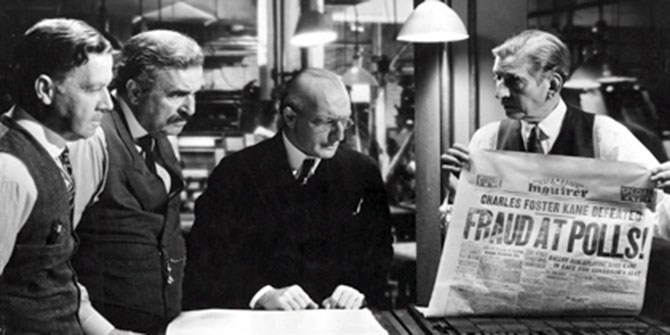LSE’s Alex Haigh assesses whether Sierra Leone can regain its former glory as the Athens of West Africa.
On Saturday 17 November, Sierra Leone’s third general election since the end of its eleven year civil war will take place. According to the UN, these polls could be “transformational”[i] in Sierra Leonean politics as they mark the end of the country’s dependence on foreign assistance as – provided the elections are conducted freely and fairly – 2012 will be the final full year UN troops are stationed in the country. This is a huge step considering the country once hosted the largest UN peacekeeping force ever deployed – of 17,500 peacekeepers.

Sierra Leone has emerged from its civil war, which left fifty-thousand dead, as a credible democracy and a burgeoning economy – albeit with a few hiccups. This is a considerable feat given that just ten years ago it was considered the least-developed country in the world by the United Nations and was widely used as an example of all the ills plaguing sub-Saharan Africa.
Since the war ended in 2002, Sierra Leone has progressed along the right lines. The economy has grown at a rate of between four and seven per cent a year and the two elections it has conducted since 2002 have been declared credible by outside observers[ii]. This process has been helped along by the solidarity of its citizens. Sierra Leoneans have been keen to see their country – once declared the “Athens of West Africa” – return to its former glory with even the unemployed prepared to pay taxes to strengthen its prospects and avoid a return to war[iii].
However, there are still niggling doubts about the future of its economy and democracy. The economy is highly dependent on iron ore, an unsustainable blessing; women continue to be under-represented in Parliament; and there are signs of intimidation to voters and journalists alike by both main parties (Sierra Leone People’s Party and All People’s Congress).
The economy is set to grow by fifty per cent[iv] this year and ten per cent each year for at least the next two. However, unemployment and poverty levels are high, while infrastructure is still very much on the road to recovery. Sudden shocks in iron ore prices could lead to a recurrence of the social problems that originally triggered Sierra Leone’s deadly conflict in the late nineties.
Nonetheless, the economic picture is not completely gloomy as, even without iron ore production, the economy will grow by six per cent a year. Investment in roads, energy and water production and other infrastructure may mean this unsustainability will be overcome; an idea backed up by decreasing rates of inflation, meaning better terms of trade and a potentially more diverse economy.
Alongside economic worries lie political ones. Women’s representation in Parliament is woefully low and the gap in literacy rates between men and women must be addressed. The 2007 Parliament consisted of only 12.5 per cent of women, leaving Sierra Leone with one of the lowest proportion of women in politics in the world. Also, a policy that would have mandated a thirty per cent quota for female representation was defeated so it is likely there will be little change in the Parliament elected on 17 November.
This is particularly unfortunate given the problems women face in Sierra Leone. For example, the female literacy rate – a basic proxy for education levels – is two thirds that of men, already one of the lowest in the world at around forty per cent. Without adequate representation in politics, problems like these will take a long time to solve.
Another issue that must be set against the country’s many improvements is political intimidation. According to the Awareness Times, an APC-leaning newspaper, journalists have been harassed and intimidated[v] and the houses of leading members of the APC have been ransacked and burnt[vi]. Similar accusations of electoral intimidation, like interference during political canvassing, have also been levelled at the APC[vii]. Clearly, this is a problem that could derail all efforts for peace, conciliation and a lasting democracy.
Whoever wins the upcoming elections will lead a post-UN Sierra Leone, which must face the world on its own. There are may be challenges to overcome but, with careful planning, Sierra Leone could re-emerge as a leading light in West Africa.





Thanks for this article. The 50% GDP growth rate is incredibly ambitious tough, and likely a figure being pedalled by the APC in the run-up to elections. Iron Ore production estimates have been revised downward by African Minerals, in addition to London Mining production figures for Rutile. The IMF has a projected real GDP increase at about 21% for 2012, abnd about 1/3 of this for 2013.